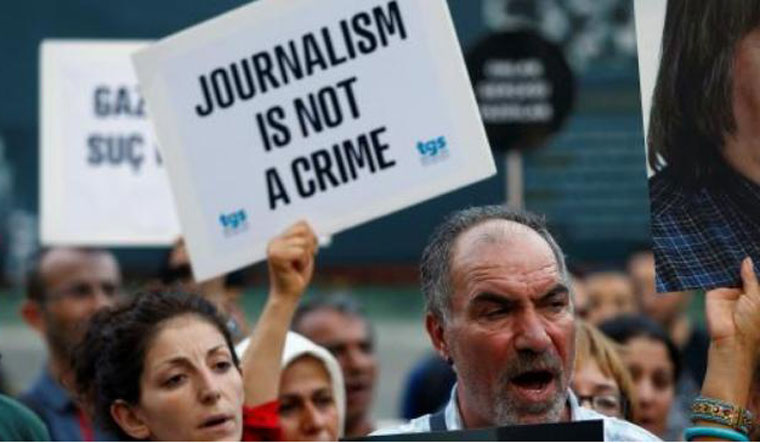According to the annual World Press Freedom Index, the coronavirus pandemic is further threatening media freedom worldwide.
The index compiled by Reporters Without Borders, a media watchdog, was published on Tuesday. The index said that the coming decade will be decisive for the future of journalism.
The 180-country index notes a correlation between a country's ranking and its response to the pandemic.
Both China, at 177th place, and Iran, at 173rd, censored reports on the coronavirus outbreak.
Secretary-General of Reporters Without Borders, Christophe Deloire said, “The public health crisis provides authoritarian governments with an opportunity to implement the notorious 'shock doctrine’.” He added that leaders could “take advantage of the fact that politics are on hold, the public is stunned and protests are out of the question, to impose measures that would be impossible in normal times”.
Among the European nations, Hungary dropped two places to 89th place. Hungarian Prime Minister Viktor Orban had passed a “coronavirus” law, with penalties of up to five years in prison for false information. As per the coronavirus law, the prime minister can rule the country by decree, meaning that he does not need to consult with other lawmakers to make decisions. The law also allows Orban to stop public demonstrations and ask media to rescind any criticisms.
Bulgaria in Europe, as per the index, has the lowest standards of press freedom and the situation did not improve despite international pressure.
As per the report, “Corruption and collusion between media, politicians and oligarchs are widespread in Bulgaria. The most notorious embodiment of this aberrant state of affairs is Delyan Peevski, who ostensibly owns two newspapers (Telegraph and Monitor) but also controls a TV channel (Kanal 3), news websites and a large portion of print media distribution.”
While Norway topped the index for the fourth year in a row, Finland was again the runner-up. After removal of president Omar al-Bashir, Sudan saw the biggest leap—it rose 16 places from 2019 to 159th place this year.
North Korea took the last position and Eritrea continued to be Africa’s lowest-ranked country at 178th place.
Russia, under President Vladimir Putin, was ranked 149th for controlling the internet using more “elaborate methods”. The report further cited a law that would allow the country to disconnect the Russian internet from the rest of the world.


